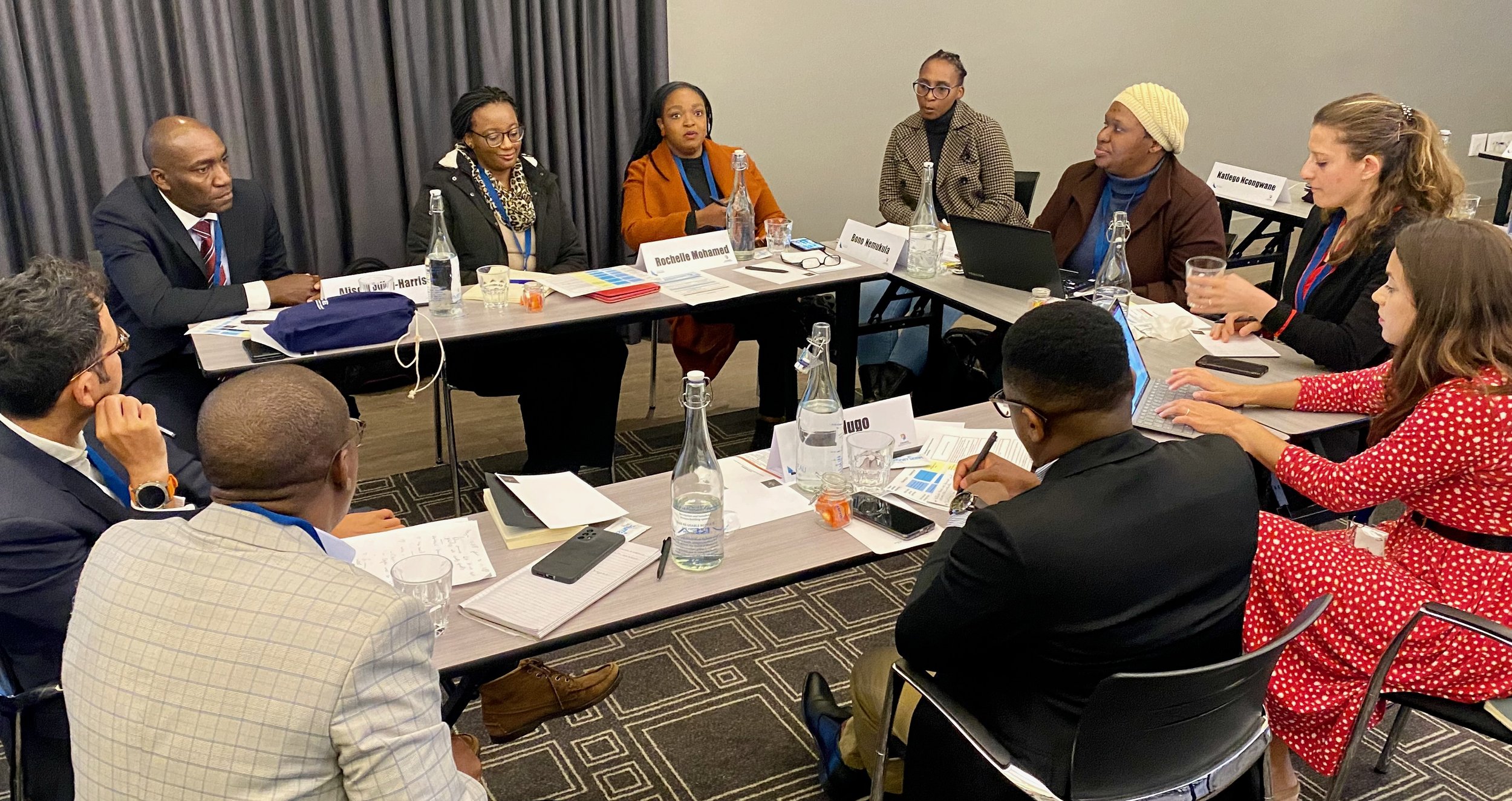High-level CHANCE conference in South Africa addressed how to advance African climate change, health policies and financing
The Climate Health Africa Network for Collaboration and Engagement (CHANCE), successfully conducted its first on-site meeting in Tswane, South Africa, 23-24 June gathering more than 60 onsite and more than 150 virtual attendees.
By Vincent Pagiwa, University of Botswana with input from Matthew Chersich, Wits University
Under the theme “Advancing African Climate Change, Health Polies and Financing” the conference gathered policy makers from government ministries, NGOs instrumental in climate and health, climate scientists and researchers, UN representatives, funding bodies and individuals with an interest in climate change and health in Africa.
High level speakers from Africa
The first day of the conference include high-level speakers presenting on different issues on climate change and health in the African continent such as Dr Sandile Buthelezi, Director at the Department of Health in South Africa; Dr Matshidiso Moeti WHO Afro regional Director (represented by the South African WHO country Director Dr Owen Kaluwa); Honourable Minister Barbara Creecy a member of the National Assembly of South Africa and Minister of Forestry, Fisheries and the Environment; Ms Jennifer Kuhl from Global Climate and Health Alliance as well as other esteemed speakers from various institutions in different African countries.
Speakers were excited about the CHANCE initiative – established through the ENBEL project - and indicated the CHANCE conference was timely, and indeed it was a “chance” to gather stakeholders to develop synergies and ideas together.
Minister Barbara Creecy a member of the National Assembly of South Africa and Minister of Forestry, Fisheries and the Environment speaking at the conference.
Solutions eminent, but not prioritized
Several challenges and potential solutions were raised. The speakers acknowledged the adverse impacts of climate change to human health and livelihoods, noting the recent unusual devastating floods disasters which took place in Kwazulu Natal Province of South Africa. While the global temperatures have increased by 1.1 degrees Celsius from the past decade, the African continent temperatures are expected to double. These current and future temperature trends were seen by speakers as a risk to the prevalence of infectious diseases such as malaria in some parts of the African continent which were not prone to malaria in the past. Speakers indicated climate change health adverse effects are noticeable with increasing number of fatalities although not well documented. Therefore, solutions to mitigate the climate and health impacts were seen to be eminent, although not well prioritized by many governments in Africa.
Potential solutions rose included but not limited to sharing of knowledge and resources, and collaboration among stakeholders and Ministries affected by climate change, adopting feasible and effective adaptation options such as building climate resilience in health systems to protect and promote human health and well-being; which is also signed under COP26, advocating for climate justice, setting and strengthening regulations on mitigation and adaptation, dealing with climate change and inequalities, coming up with solutions to minimize health effects of climate change and maximising the health benefits of climate mitigation and adaptation, and most importantly financing climate change health impacts.
Minister Barbara Creecy who reflected more on climate change politics also indicated the unfairness in the distribution of climate funds from the global funders. She noted the African continent carbon emissions are lower than of developed countries, yet African still receives limited funding. However, she encouraged African countries to look for other solutions of funding climate change impacts.
Financing and policy development - it’s time for Africa
Day two reflected on planning for climate financing and policy development discussion lead by Prof Matthew Chersich and Prof Yogan Pillay with a panel of Climate Financing Organizations. The most outstanding challenge was the fact that within all sectors affected by climate change, the health sector is neglected across all climate funding streams. Even when health is funded, funding usually goes to mitigation rather than adaptive strategies, and in addition funding may be approved but end up not being disbursed. However, they were promising funding options, some with revised application requirements to allow for more projects applications. The conclusion of this session emphasised it is time for Africa, and African based researchers should be encouraged to lead African based projects.
The CHANCE conference:
· Raised the profile of the health sector among climate financing multilaterals
· Raised the possibility of climate financing in major health multilateral agencies
· Highlighted the need for equitable research funding directed to LMIC researchers
· Raised the profile of African researchers






